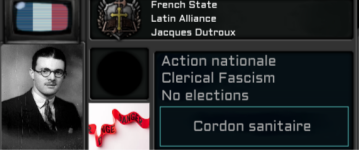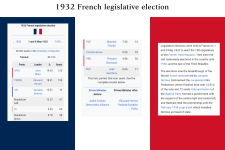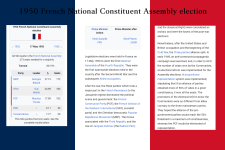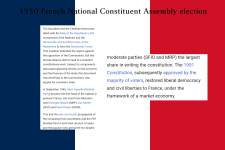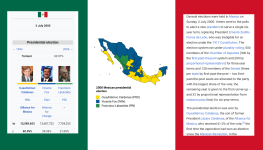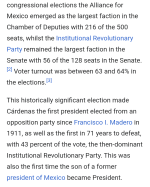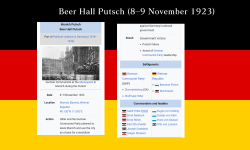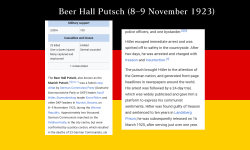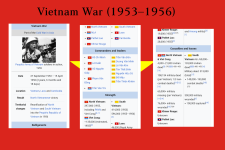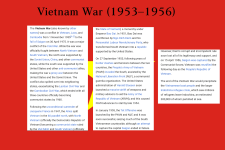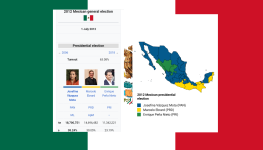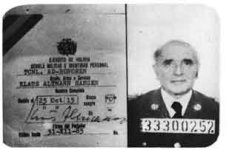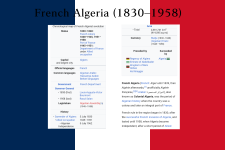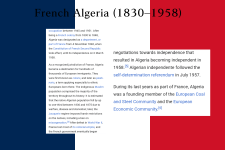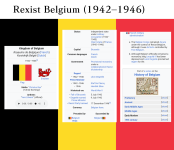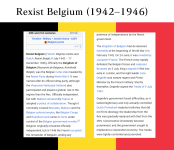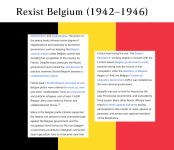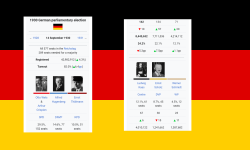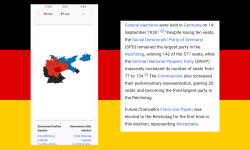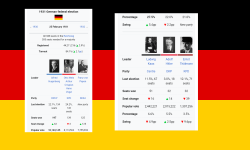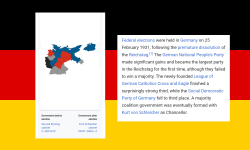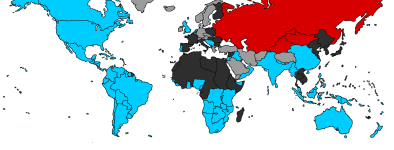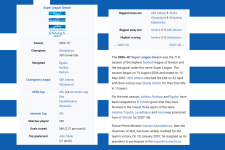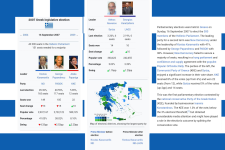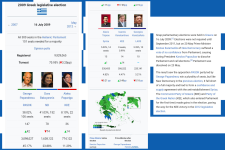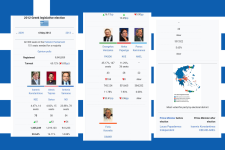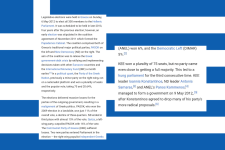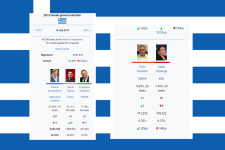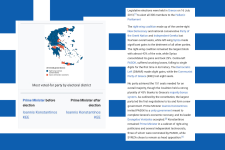NotDavidSoslan
Active member
Jacquerie France is often referred to by historians as the Third French Empire due to its expansionist and Anglophobic ambitions, and Jacques Dutroux is compared to Napoleon Bonaparte, especially since both lost.
During WWII, it created the following puppet states:
• Rexist Belgium
• The Rhineland Republic
• The Independent State of Croatia, which is not shown on the map.
Shortly after the tripartite attack on British forces in Egypt, the French colonial forces invaded all of Britain's colonies in West Africa, and after France invaded Belgium, they also launched an attack on the Belgian Congo that captured its western half but not the eastern jungles due to the King's African Rifles holding out. Sudan was not invaded during the war.
By 1945, all of France's overseas territories, other than French Polynesia, which held out until the country surrendered, had been lost to the Allies, and postwar treaties meant France lost all of its overseas territories other than the original French West Africa, Tunisia and Algeria, all of whom later peacefully obtained independence from foreign rule.
France, Italy and Egypt managed to capture most of the latter's territory, but they failed to capture the massive base around the Suez canal twice, and their final defeat in March 1945 was a major turning point in the war.
French Indochina remained controlled by France, but it lost some territories to Thailand and gave Japan access to its territory and resources, and from 1943 onwards, much of its territory was captured by the Viet Minh, which ruled the north of the country as a communist state after 1947, while the south, Laos and Cambodia became independent kingdoms.
Martinique was captured by the United Kingdom between 17 and 19 September 1944, around the same time Brazil invaded and annexed French Guyana with the support of the United States. On the other hand, the Seychelles were reocuppied by the French colonial forces, and together with Madagascar and the Comoros, remained in Jacquerie hands until early 1945.
France also annexed British Somaliland to French Somaliland, but by May 1945, it had been retaken along with North Africa.
February–March 1944 was the final phase of the war before the colonies of Axis countries came under attack from the Allies. The invasions of Spain and Italy and France's loss of North Africa, as well as the Marine nationale's defeat at the Bay of Biscay, allowed metropolitan France to be invaded.
The Jacqueries were never able to capture southern Nigeria and Accra, both of whom they were stopped at by Commonwealth troops. New Caledonia was the first in the house of cards called French State to fall to the enemy, doing so in April 1944.
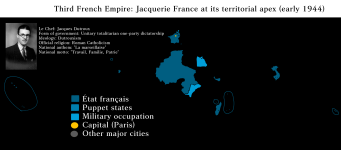
During WWII, it created the following puppet states:
• Rexist Belgium
• The Rhineland Republic
• The Independent State of Croatia, which is not shown on the map.
Shortly after the tripartite attack on British forces in Egypt, the French colonial forces invaded all of Britain's colonies in West Africa, and after France invaded Belgium, they also launched an attack on the Belgian Congo that captured its western half but not the eastern jungles due to the King's African Rifles holding out. Sudan was not invaded during the war.
By 1945, all of France's overseas territories, other than French Polynesia, which held out until the country surrendered, had been lost to the Allies, and postwar treaties meant France lost all of its overseas territories other than the original French West Africa, Tunisia and Algeria, all of whom later peacefully obtained independence from foreign rule.
France, Italy and Egypt managed to capture most of the latter's territory, but they failed to capture the massive base around the Suez canal twice, and their final defeat in March 1945 was a major turning point in the war.
French Indochina remained controlled by France, but it lost some territories to Thailand and gave Japan access to its territory and resources, and from 1943 onwards, much of its territory was captured by the Viet Minh, which ruled the north of the country as a communist state after 1947, while the south, Laos and Cambodia became independent kingdoms.
Martinique was captured by the United Kingdom between 17 and 19 September 1944, around the same time Brazil invaded and annexed French Guyana with the support of the United States. On the other hand, the Seychelles were reocuppied by the French colonial forces, and together with Madagascar and the Comoros, remained in Jacquerie hands until early 1945.
France also annexed British Somaliland to French Somaliland, but by May 1945, it had been retaken along with North Africa.
February–March 1944 was the final phase of the war before the colonies of Axis countries came under attack from the Allies. The invasions of Spain and Italy and France's loss of North Africa, as well as the Marine nationale's defeat at the Bay of Biscay, allowed metropolitan France to be invaded.
The Jacqueries were never able to capture southern Nigeria and Accra, both of whom they were stopped at by Commonwealth troops. New Caledonia was the first in the house of cards called French State to fall to the enemy, doing so in April 1944.



